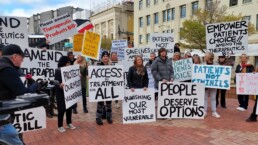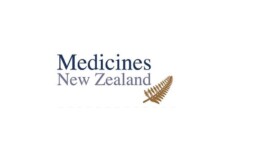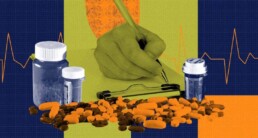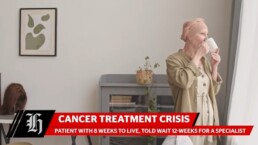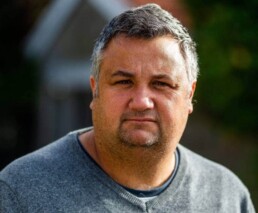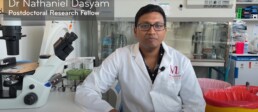Therapeutic Products Bill Hikoi
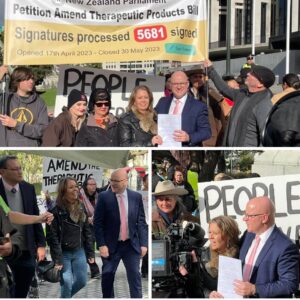
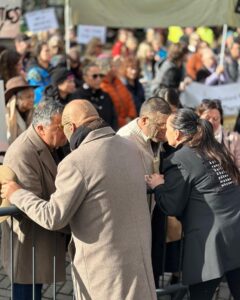
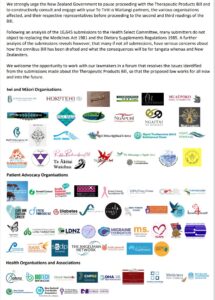
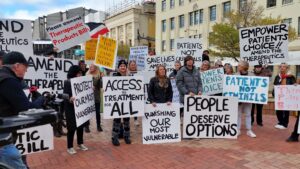
New Zealand's Medicines Landscape 2022/23
Medicines New Zealand has today released the 2022/23 edition of their annual publication New Zealand’s Medicines Landscape. This edition sheds light on the significant cost of ill health to New Zealand and reiterates that New Zealand continues to rank last among the OECD countries for access to modern medicines.
A new report cited in the Landscape shows that New Zealand is in last place amongst OECD countries, with Hungary second to last, in terms of public health system access to modern medicines. New Zealand continues to lag well behind countries like Australia and the UK.
"New Zealand likes to compare itself to Australia and hopes to be better than them. It appears we need to lower our expectations when it comes to modern medicines access- so it's a case of ‘Goodbye Australia - Hello Hungary’ for us and our Health system’s access to modern medicines" says Dr Graeme Jarvis, CEO of Medicines New Zealand.
The Landscape also highlights that the over 80 medicines on Pharmac’s Options for Investment list remain in a state of limbo, for more than five years and counting on average, as they still wait for a funding decision to be made. This is despite the current Government providing some much-needed additional investment to help try and clear the list of medicines - many of which are standard of care in other OECD countries. This creates issues in New Zealand with inequity of access for patients, the health system, broader society and the economy. The country is therefore missing out on the benefits that the medicines could bring.
"It is well established that medicines play a critical role in any health system, allow patients and carers to go back to work and help reduce hospitalisation which may help relieve some of the hospital workforce issues. So it is somewhat surprising that they are not better valued as a critical tool within the health system and society here in New Zealand."
The Landscape also highlights solutions that could allow New Zealand to catch up with our peer OECD nations including the need for the development of a fit-for-purpose, future focussed Medicines Strategy. The need for a Medicines Strategy to be developed by February 2023 was also a recommendation from the Independent Pharmac Review Panel's final report. However, there is no sign of that Strategy being developed at all. Instead, the country is still waiting for it, just like it is for the many medicines on the waiting lists.
The 2022/23 edition of New Zealand’s Medicines Landscape can be found online here.
The PhRMA Report: Global Access to New Medicines Report can be found online here
Understanding the Importance of Screening for Skin Cancer While Living with CLL/SLL
Most individuals with CLL/SLL understand that the compromised immune system is the reason that an increased infection risk comes along with having the disease. But not as many are aware that secondary cancers, such as skin cancer, is also caused by an immune system that is no longer functioning at its best.
Read more here: Screening for Skin Cancer While Living with CLL/SLL
Time taken for Pharmac funding decisions ‘too long’, says Medicines NZ
It takes the nation's drug-buying agency, Pharmac, an average of 7.7 years to make funding decisions about potentially life-saving medicines, a report has found.
The Pharmac's Medicines Waiting Lists: Impacts on Patients in Aotearoa New Zealand report, commissioned by lobby group Medicines New Zealand found it took on an average nearly eight years to reach a decision on applications across all Pharmac lists.
Read the Stuff article here: Pharmac medicines waiting lists too long
Here is the full report: Pharmac Waiting Lists Report April 2023
Cancer patients harmed by ongoing treatment delays at Southern health board
In the first two months of 2021, 27 patients were harmed by cancer treatment delays, the Otago Daily Times reported.
Three became so sick while waiting they were unfit for treatment.
Have you been affected? Please email: newsdesk@nzherald.co.nz
Please read more here: Cancer patients harmed by treatment delays
“Fabulous Ladies in the Same Boat”
These are the stories of three Fabulous Ladies, Wendy, Bronwyn and Diane, all in the same boat.
Thank you and we appreciate you sharing your tales with us.

First we would like to pay tribute to the great work that Dr Neil Graham did on our behalf. He was also a mentor and an encouraging voice to so many of us.
Wendy
I’m Wendy and I’m 72. I was diagnosed with CLL 15 years ago. Until about 3 years ago my CLL had travelled through life never interrupting my work and play. Fortunately for me in September 2019 Bronwyn , Diane and I connected through the CLL website. We got chatting privately and somehow the same boat was launched.
In this time, we’ve sailed through calm waters, and we’ve weathered storms together. We are three very different women leading very different lifestyles, but we have this common thread. We have somehow found some common themes, such as: the disease doesn’t define who we are; one of us will have the wisdom or information that will solve an issue (like where to get ibrutinib from, at an affordable price), and we’re here for you - you’re not alone.
We share with each other how we’re getting on with life. Diane and Bronny truly inspire me, I don’t have enough words to thank them. We are not in constant contact but we each know that when there’s a challenge, medical or personal, the other two are only a message away. Due to Covid we’ve not had a chance for all three to join together, but one day soon. And that’s when we’ll drink our Moët across our trusty little boat’s stern.
Bronwyn
In April 2019 I was diagnosed with Small Lymphocytic Lymphoma/Chronic Lymphocytic Leukaemia at 46. Mine was an accidental discovery, a total shock. Once I got over my initial shock I wanted to know everything I could about my disease and possible outcomes and treatments. This is when I joined the CLL group. Neil Graham also reached out and chatting to him helped my understanding enormously. I'm not sure who got hold of who, but Wendy and I started privately messaging each other after seeing comments on the CLL page. Very shortly afterwards we started chatting to Diane as well. I then decided we should all chat at the same time and set up a Facebook messenger group called ‘fabulous ladies in the same boat’.
I was working full time in the Air Force when diagnosed and had one child still in the nest. Wendy and Diane are considerably older than me, but that didn't matter at all, we all had CLL. Our experience with the disease over the last few years has been very different, so sharing has been helpful. For example, Wendy and I are on ibrutinib, and Diane is on watch and wait. Sourcing ibrutinib for an affordable price is something Diane helped Wendy with extensively, so when I was making decisions later on, the leg work had already been done. Wendy got hold of me when she was in Auckland back in 2020 and suggested we catch up. I was keen to meet the person I had been talking with a lot at the time, and we got along famously.
Meanwhile Diane and I had established that she had taught with my Dad at Aka Aka School - two degrees of separation in NZ. Wendy and Diane managed to have a weekend together but unfortunately due to Covid and life, the three of us haven't been together in the same place yet. Finally, Diane and I met in person in March last year when she was on a road trip up North, it was like we knew each other already, it was lovely to see her.
Wendy, Diane, and I didn't only share our CLL stories we shared our life stories and became friends. They were there for me over the most stressful time, initial diagnosis, they understood my fear and emotions more than family and friends. I am very thankful for the connection we made and would encourage others to do the same.
Diane
And I am Diane. I was diagnosed four years ago at 72. My WBC and ALCs are much higher than my other shipmates have ever been I think (sitting at around 83.5 WBC right now), but I keep really good health with none of the accompanying symptoms as yet. I get tired from time to time but definitely wouldn’t call it fatigue (probably just old age!) I take a keen interest in this damned disease we have and the most recent developments in treatment. I use Health Unlocked and Patient Power to helpme and any other authentic sites I can to stay as informed as I can. I am so hoping that I can hold out until the drugs that are readily available in most developed countries are accessible here in NZ.
I am concerned that our most avid advocate Neil Graham is not with us anymore. We ‘fabulous ladies in the same boat’ would never have met if it hadn’t been for him.
Interestingly we have all made significant lifestyle changes since we met. It was great to meet up in ‘real life’ with Wendy and her partner Graham when they came to Nelson (I think they have since moved in together). I have moved from Nelson to Christchurch to be closer to family, and Bronny. has left the Air Force and moved to a beautiful lifestyle block in Kerikeri with her partner Scott. I am not sure what relevance that has to us all having CLL but maybe it means that we are all on the same path and trying to make the most of life!
At the beginning when we were all trying to ‘keep our heads above water ‘ with our new diagnoses we supported each other. Now that we have come to terms with our condition and know more about it we are not so reliant but know that we are always there for each other.
And as Wendy said, ‘One day we will all meet together and share that Moët!’
Pharmac's year in review leaves much to be desired
It shouldn’t be this hard when it comes to getting medicines funded. Such efforts highlight everything that is wrong with Pharmac and the way it is funded by the Government.
Patient advocate Malcolm Mulholland hopes health reforms will ensure greater and more equitable access to medicines.
Read more here: Pharmac's year in review leaves much to be desired
In Focus: From the lab to the clinic in New Zealand’s first CAR T-cell therapy clinical trial
Dr Nathaniel Dasyam is a postdoctoral researcher who has been working in the Malaghan Institute’s CAR T-cell therapy programme since 2019. Nathaniel is a self-described ‘Jack of all trades’ when it comes to his role within the programme..
Nathaniel works in the research team, where the CAR T-cells are designed, and supports both the GMP team, where the CAR T-cells are manufactured, and the clinical team, who administer the CAR T-cells to participants in the trial.
“It just so happened that the project I was working on previously at the Malaghan Institute, to test a therapeutic vaccine for melanoma, laid the groundwork for many of the processes that needed to be in place to manufacture CAR T-cells.”
This placed Nathaniel in an ideal position to help the CAR T-cell team develop methods needed to test CAR T-cells for the ENABLE clinical trial – a first of this kind for New Zealand. This was no mean feat given it involves developing a gene therapy in a highly regulated environment.
CAR T-cell therapy works by extracting a patient’s own immune cells and modifying them in the lab to identify and attack cancer cells once they have been returned to the patient. The ENABLE trial uses CAR T-cells to treat patients with certain types of relapsed and refractory B-cell non-Hodgkin lymphoma, who have exhausted other treatment options. Read more here: first-car-t-cell-therapy-clinical-trial
NZIER Community Pharmaceuticals Report 2022
NZIER has today released its 2022 Community Pharmaceuticals Report. This report looks at the overall trends in the Government-funded medicines budget for New Zealand in the 15-year period between 2006/07 and 2020/21.
We recommend reading the executive summary of the report as a starting point. Below are some key ideas which have come out of the report.
(1) The report identifies that there is a $332 million investment gap in medicines that are publicly funded and made available to patients through the public health system in New Zealand.
- This is the amount of additional investment that would be required on top of the current budget to have the same level of investment in medicines as existed in 2006/2007 in real terms (i.e. inflation and population adjusted).
- The additional investment is required because, despite some new investments being made, there have also been significant transfers of already existing medicines spending from other parts of the health system into the Combined Pharmaceutical Budget from 2012 onwards, which has hidden the fact that the core funding (community pharmaceutical expenditure) has been dropping [see Figure 2].
- As a result, when compared to the total Health budget which has grown by 1.0% in real terms over the 2006-2021 period, the community pharmaceuticals budget has decreased by 2.9% on an annual compound growth basis [see Table 1].
(2) One solution to this investment gap would be a corrective real terms adjustment of $332 million to maintain stability in pharmaceutical investment relative to other health and social investments [See Table 2].
- This corrective action approach was taken by the Government with the DHB deficits in Budget 2022. The Government has also taken a multi-year approach to funding the health system with a confirmed and committed $14.9 billion over the next four years. It is the first Budget ever to take that multi-year approach.
(3) Looking forward from 2022, the medicines budget received $191 million investment but only over a 2-year period ($72 million (2022/23)and $120 million (2023/24)), rather than a four-year period as for other parts of the system. This lack of funding commitment and stability was raised by the Treasury as the only major health budget issue in their Budget Economic & Fiscal Update (BEFU) for 2022.
- Other near-term issues include the need for the medicines budget to also include investment in COVID-19 vaccines and therapeutics going forward, which will put more pressure on an already stressed medicines budget situation.
Publicly funded community pharmaceuticals are a critical and valuable enabler for both New Zealanders' ability to self-manage health conditions and for the health system to function optimally. They, therefore, require protection from ongoing budget erosion. There also needs to be an alignment of the medicines budget appropriation to the broader health systems budget and planning cycles.
To read the full report, please click here
Help us Help you! Please join one of three CLL focus groups on 3rd or 10th of December on Zoom.
Help us help you!
We’re getting moving on some research to find out what CLL patients would like CLL Advocates NZ to do for them.
Please help us with this by joining one of three focus groups on Zoom to help us understand what issues are of greatest concern and interest to you and how we can help with them.
The sessions will be very friendly, café-style discussions with groups of 6 – 8 people and a professional facilitator, and you’ll be able to join by one simple click on an email we’ll send you. The groups will be held on :
- Saturday 3rd December 10:00am – 11:30am
- Saturday 3rd December 1:30pm – 3:00pm
- Saturday 10th December 10:00am – 11:30am
We have limited resources so we’re very keen to start the year with a fresh agenda focused on what really matters to patients and their whanau.
Please contact Melanie (our admin assistant) on clladvocates@outlook.co.nz with any questions, and to let us know if you can join one of these groups.
The information we gather from these sessions will be strictly confidential to CLL Advocates NZ and you would not need to show your full name online if you prefer.
Please help us to help you!
